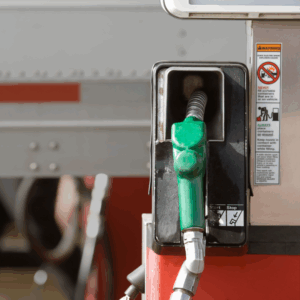Ready to pack up the car, kids, and the cooler and hit the road? To avoid that unexpected service stop, check a few things before you leave:
- Is your vehicle due for an oil change? Or will you exceed the recommended 5,000 miles in between oil changes while you are on your
 trip? If so, have your vehicle serviced before you leave and have a set of experienced eyes look everything over – prevent an unexpected layover at a repair shop in Timbuktu!
trip? If so, have your vehicle serviced before you leave and have a set of experienced eyes look everything over – prevent an unexpected layover at a repair shop in Timbuktu! - Check your tires – don’t forget the spare! Check your tread and tire pressure. Be sure your tire tread is adequate to prevent hydroplaning on wet roads (minimum 2-4/32″ recommended). Tires wear more evenly, last longer, and perform as intended when inflated to the correct pressure. Feel free to stop in and have a complimentary tire pressure and tread depth check at any time.
- Have your brakes checked before you leave. Brakes are the single most important safety item on your car – you need to be able to stop quickly when necessary. Brake pads and rotors (the metal plate that the brake pads press upon) wear with time and use, and therefore require machining (rotors) and/ or replacement. Replacing brake pads before they are worn out can save money in the long run, because when the brake pads are gone, the metal to metal contact will groove and warp the rotors, requiring replacement ($$$).
- Check Fluid Levels, especially brake fluid, coolant, washer fluid, engine oil, and power steering fluid. Keep an eye under your car
 (wherever you park) for any fluid puddles. Also look at fluid condition – cloudy, dirty fluids are not as effective in doing their job and they cause accelerated wear on components they were designed to protect.
(wherever you park) for any fluid puddles. Also look at fluid condition – cloudy, dirty fluids are not as effective in doing their job and they cause accelerated wear on components they were designed to protect. - Check your belts and hoses. Hoses and belts are critical for the systems that keep your engine cool (radiator and coolant) and your battery charged. If either break or leak, the engine can overheat, resulting in catastrophic engine failure. Look for cracks or leaks in the hoses, and check the belts for cracking or visible fraying.
- Have your battery tested. Contrary to popular belief, batteries die more often in the summer from excessive heat. Extreme changes in
 temperatures throughout the winter and spring take their toll, and the summer heat speeds up the chemical reactions occurring in your battery. Batteries can fail without warning – so have your battery condition checked before you leave home.
temperatures throughout the winter and spring take their toll, and the summer heat speeds up the chemical reactions occurring in your battery. Batteries can fail without warning – so have your battery condition checked before you leave home.
We wish you safe and enjoyable travels this summer, whether you are traveling out of state or doing a “staycation”.



